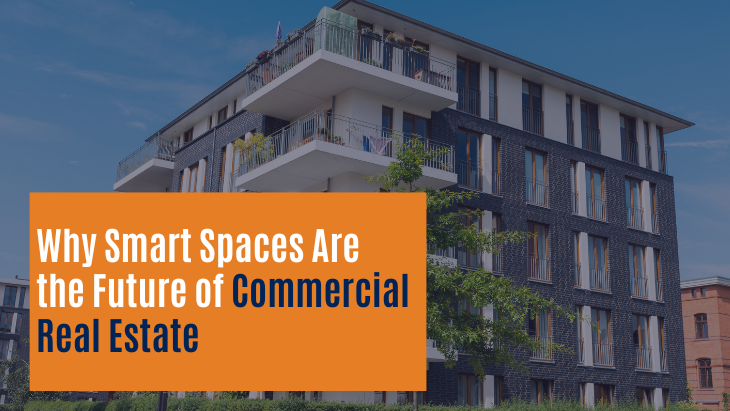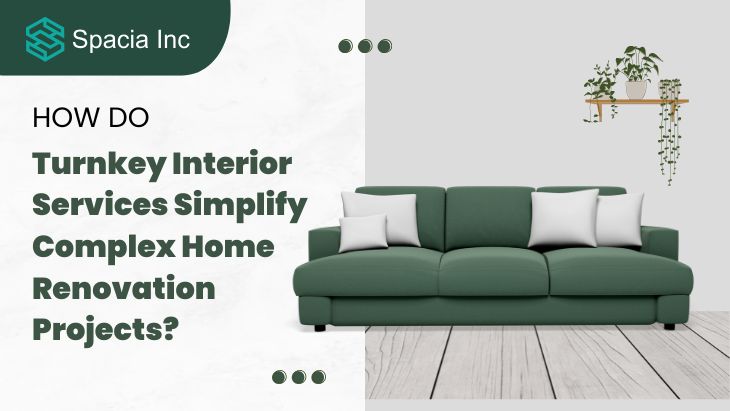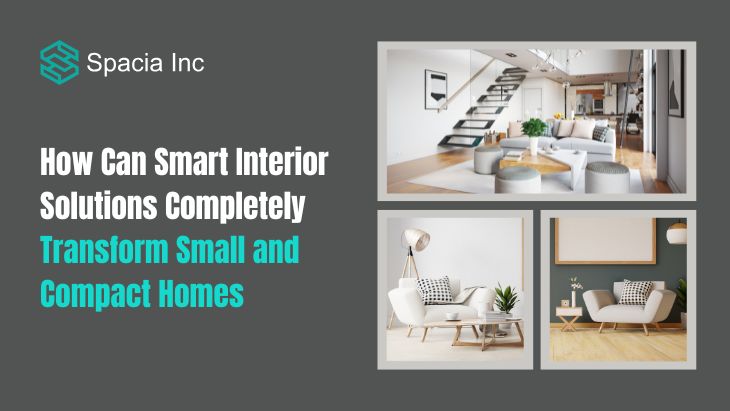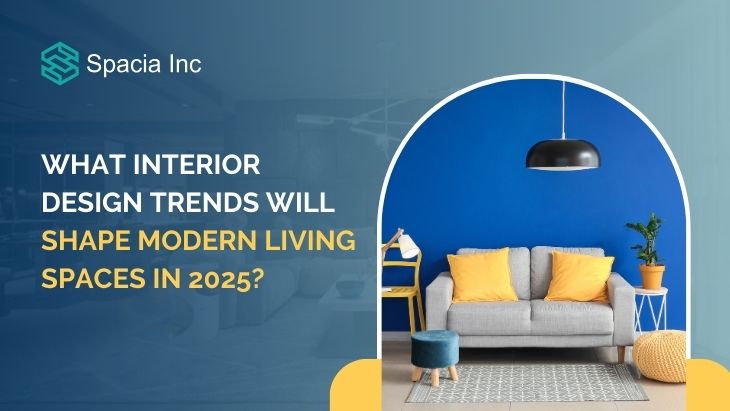Commercial real estate is undergoing a revolutionary shift fueled by technology, sustainability, and changing needs of contemporary business. The conventional office spaces are being substituted by smart environments incorporating sophisticated digital infrastructure, real-time data systems, and human-centric design. Interior Design & Turnkey Solutions These intelligent spaces are more than automation these are intelligent, responsive spaces that make people more productive, lower the costs of doing business, and align with long-term business objectives. With an increasing emphasis on interior design & turnkey solutions, commercial developers are transforming real estate to be responsive, functional, and future-proof.
The Role of Technology in Transforming Workspaces
Digital technology integrated into physical spaces is at the heart of smart spaces. From smart lighting and climate-controlled devices that are IoT-enabled to AI-driven systems for optimizing space utilization, technology is transforming static offices into dynamic ecosystems. With sensors and data analytics, companies can now track footfall, energy usage, and even employee morale. This kind of visibility allows companies to make more informed decisions regarding layout, resource planning, and design improvements, making smart spaces a critical component of innovative commercial plans.
Adaptive Design Blends Flexibility with Functionality
Flexibility is the most precious attribute of contemporary commercial spaces. With businesses transitioning between hybrid, remote, and in-office models, they require spaces that can change instantly. Intelligent offices incorporate movable furniture, relocatable partitions, and multi-functional areas that can be rearranged without extensive renovation. This is where interior design & turnkey solutions enter the picture—giving companies ready-to-go, tailored spaces that work on day one. Developers and designers collaborate to design layouts that are both beautiful and easily modified to accommodate changing business requirements.
Energy Efficiency and Sustainability as Core Values
Convenience is the key in smart spaces, but sustainability is also at stake. With automated smart energy meters, climate control, and lighting, companies can minimize their environmental impact. They also lower operational costs, making smart spaces not just ecologically but also economically advantageous. Energy-efficient appliances, waste-reduction systems, and sustainable interior design materials also align with international ESG (Environmental, Social, and Governance) objectives. Firms now aggressively pursue commercial buildings that accommodate green initiatives, so eco-friendly smart spaces are an extremely competitive asset in real estate holdings.
Improved Employee Welfare and Efficiency
Wellness in the workplace is of utmost concern for contemporary enterprises, and smart spaces are built for employees' welfare. From ergonomic chairs and natural light to air quality sensors and customized workstations, smart offices build spaces that facilitate mental and physical wellness. Integration with health apps and wearable technology enables companies to monitor comfort levels and improve working conditions. This integrated approach increases morale, decreases sick time, and improves overall productivity. Interior design & turnkey solutions are now integrating more biophilic features, wellness spaces, and sound-optimized meeting spaces to enable these objectives.
Data-Driven Decision Making in Space Utilization
Companies are able to track which areas of the space are most utilized, what rooms are not being used, and how often amenities are used. This enables them to make accurate decisions regarding space reallocation or shrinking without trial and error. Smart spaces give transparency and flexibility in real estate management, yielding maximum ROI per square foot. Data also fuels ongoing refinement, enabling companies to reshape their environments according to real usage habits.
Security and Access Control in the Digital Age
Security is a key consideration in commercial real estate, and smart spaces upscale protection with technology. Biometric access systems, remote monitoring, and artificial intelligence-powered threat identification make commercial areas both secure and reactive. Cloud-based access control permits administrators to grant access remotely, and smart sensors can identify unauthorized access, equipment breakdowns, or environmental irregularities such as leaks or fires. These technologies not only safeguard assets but also offer reassurance to tenants and business owners, creating secure smart spaces—a very attractive offer.
Turnkey Solutions as the Norm, Not the Exception
In the current fast-paced business world, businesses can ill afford time for long construction or interior design projects. They require move-in spaces that are specifically designed to meet their brand and operational needs. Interior design & turnkey solutions offer an uninterrupted experience with end-to-end project delivery from space planning and design to construction, furnishing, and technology installation. These solutions streamline the process of dealing with numerous vendors and minimize setup time, enabling businesses to concentrate on their core activities from the moment they step into the space.
Cost Optimization Through Smart Building Management
Smart spaces also make it less expensive to run a commercial property in the long term. Automated systems minimize the use of manual labor, predictive maintenance reduces downtime, and energy-efficient appliances reduce bills for utilities. Cloud-based facility management platforms enable centralized control of lighting, HVAC, security, and even janitorial services. These operational efficiencies result in substantial cost savings, which are especially attractive to small and medium businesses wishing to scale without breaking the bank. Turnkey smart solutions guarantee that all elements of the property are optimized for performance and cost savings.
Conclusion
The commercial real estate sector is on the cusp of a new age one where technology, design, and functionality combine to deliver intelligent, sustainable, and human-centered spaces. Spacia inc Smart offices are no longer something futuristic; they are the new norm for companies looking to grow, be efficient, and foster employee wellness. Interior design & turnkey solutions make this transition not only effortless but also strategic. For property developers, investors, and company proprietors, adapting to this change is not only a wise choice it's a matter of survival in a fast-evolving world.





Leave a reply